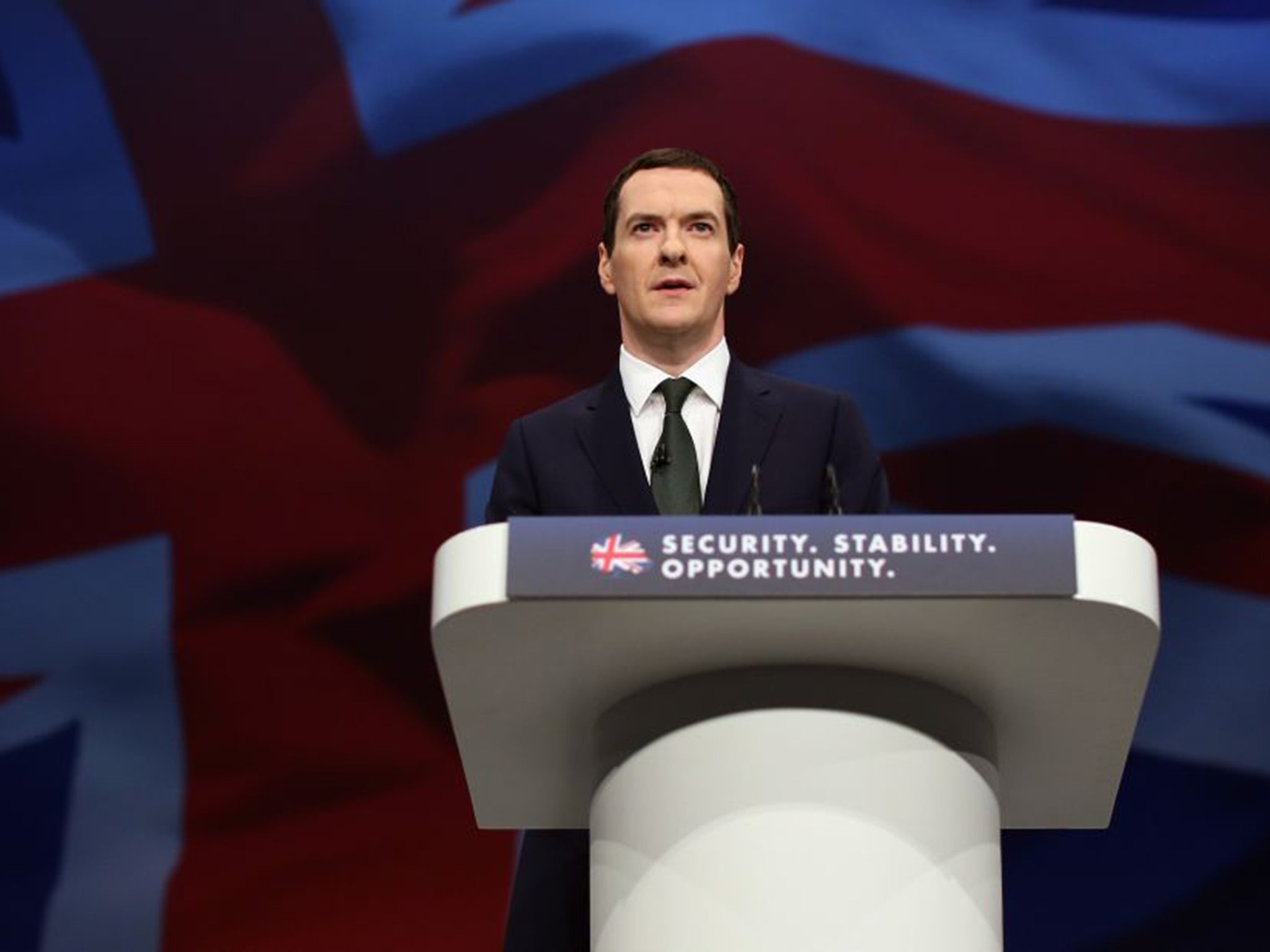George Osborne has given the nation a lesson in how not to balance the books
Rushed asset sales mean poor value for the taxpayer, as the disastrous sale of Royal Mail showed in technicolour


Your support helps us to tell the story
From reproductive rights to climate change to Big Tech, The Independent is on the ground when the story is developing. Whether it's investigating the financials of Elon Musk's pro-Trump PAC or producing our latest documentary, 'The A Word', which shines a light on the American women fighting for reproductive rights, we know how important it is to parse out the facts from the messaging.
At such a critical moment in US history, we need reporters on the ground. Your donation allows us to keep sending journalists to speak to both sides of the story.
The Independent is trusted by Americans across the entire political spectrum. And unlike many other quality news outlets, we choose not to lock Americans out of our reporting and analysis with paywalls. We believe quality journalism should be available to everyone, paid for by those who can afford it.
Your support makes all the difference.“Vacuous and irrelevant” – that was how, in 2010, the Chancellor George Osborne described previous legislative attempts to force the Government of the day to run budget surpluses. Yet that is precisely what he seeks to do with his Charter for Budget Responsibility that comes before the House of Commons tomorrow.
Little wonder he feels the need to do this very public about-turn. In a speech to the CBI in 2010, the Prime Minister David Cameron said that “in five years’ time, we will have balanced the books”. Back then they set a target to eliminate the deficit by this financial year. In the event, the Chancellor failed to meet this goal. The deficit came in at 2.4 per cent in 2014 and is forecast to be 1.7 per cent of GDP this year. It does not move into a surplus until 2017-18, some three years later than they planned.
They also set another target – for public sector net debt as a proportion of GDP to be falling by 2015-16. The Chancellor managed to achieve this through some jiggery-pokery with the numbers, namely rushed-through asset sales during the Tory-led Coalition Government to pay down enough of the debt for this supplementary target to be met. But rushed asset sales mean poor value for the taxpayer, as the disastrous privatisation of Royal Mail illustrated in technicolour.
Consequently, the Government racked up £200bn more borrowing than planned in the last five years due to its policies falling short and the lack of growth. And because of this failure, Mr Osborne and co are now seeking to meet their goals by punishing the poorest and most vulnerable in society. The Resolution Foundation estimates that 600,000 children (mostly in working households) will fall into poverty once all the measures in the summer budget take effect. This is no assault on poverty as the PM claimed last week – it is precisely the opposite.
Why does this all matter? Because reducing the debt and our deficit is a progressive endeavour. Currently the state spends more on paying interest every year to City speculators and investors holding Government debt than it spends on people’s housing, skills or transport.
Ultimately, the best way to cut the deficit and the debt is to ensure we have better-paid jobs, and build more affordable homes, which will increase income tax receipts and reduce people’s need for extra support from the state. We are among the countries with the highest incidence of low-paid work in the developed world. We have to change that by rebalancing and restructuring our economy through the strategic, active prosecution of industrial strategies.
The current recovery – the slowest on record – has severe weaknesses: our export performance remains lacklustre; output depends on private consumption; household debt is rising; regional imbalances persist; investment in innovation, research and development lags behind our competitors; and, save for Japan, our productivity is the worst in the G7.
Aiming to reduce the national debt in the long term and running small surpluses when the economy is operating close to full capacity is sensible. But a greater focus on addressing these imbalances in our economy would be a far more relevant, less vacuous and substantial way of achieving this than the political stunt the Chancellor seeks to pull off with his Charter this week.
Chuka Umunna is the Labour MP for Streatham and was Shadow Business Secretary from 2011 to 2015.
Join our commenting forum
Join thought-provoking conversations, follow other Independent readers and see their replies
Comments